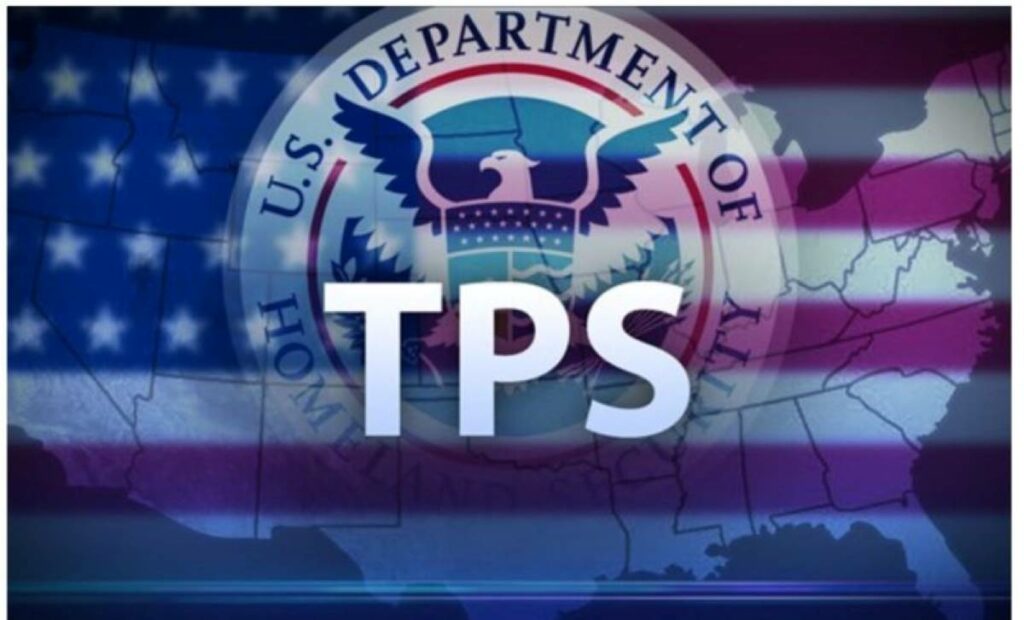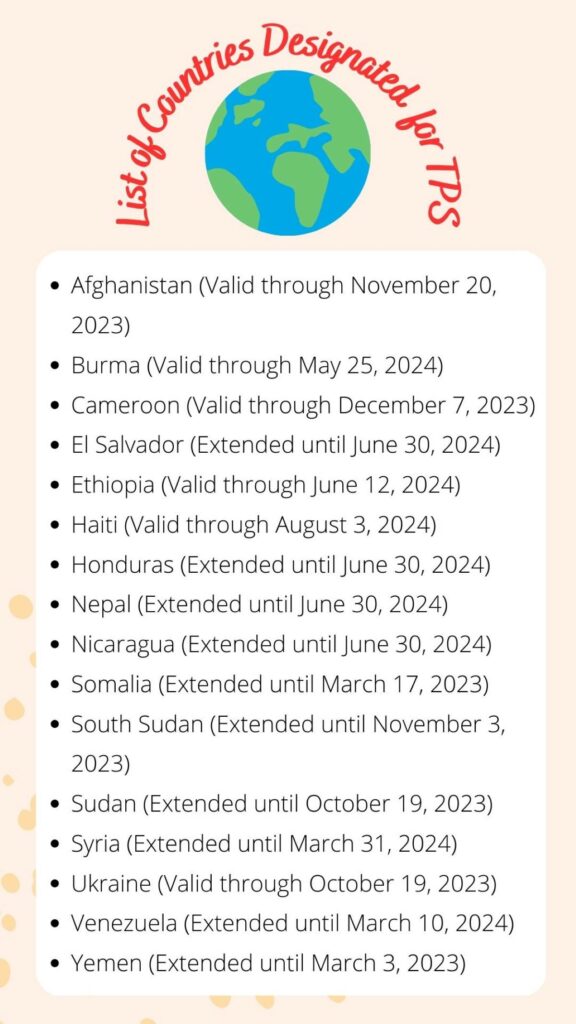Immigration policy remains an essential conversation. The reality this presents is that thousands of people in the US cannot return to their home countries due to environmental disasters, ongoing conflict, or other circumstances.
Currently, there are some humanitarian reliefs available for those who need it. Two such relief programs are the Temporary Protected Status (TPS) and Deferred Enforced Departure (DED). While the former is a statutory program established by US Congress, the latter is special power granted only by the President.
This article explores both programs, including eligibility requirements, benefits, and how to get them.

- What is Temporary Protected Status?
- How Does TPS Work?
- Benefits of TPS
- What Reasons Can a Country Have To Be Designated for TPS?
- Who Is Eligible for Temporary Protected Status?
- How to Apply for TPS
- Documentation Needed
- What Happens Next?
- Temporary Protected Status Processing Time
- Can You Apply for Green Card if You Have TPS?
- Can You Work if You Have TPS?
- Can Your TPS Be Extended?
- What Is Deferred Enforced Departure?
- Protecting Vulnerable Communities
What is Temporary Protected Status?
The Temporary Protected Status (TPS) is a humanitarian relief program established by Congress that provides individuals with temporary protection from deportation to their own countries. The relief also provides work authorization to immigrants who cannot return to their countries so as not to face prosecution, ongoing conflict, and other circumstances.
While this relief was established by Congress, it is administered by the US Department of Homeland Security (DHS).
How Does TPS Work?
The Secretary of Homeland Security can select countries for TPS designation. Immigration from such countries can temporarily apply for a status to remain within the US until the circumstances have been quelled.
The Department of Homeland Security typically consults with the Department of Justice, the Department of State, and the National Security Council to select a country for immigration TPS.
Benefits of TPS
During the designated period, you are eligible for the following benefits if you’re a TPS holder:
- Employment authorization document (EAD)
- Travel authorization
- Right to remain in the US and to avoid being detained by DHS based on your immigration status
Are you a Ukranian citizen in need of a safe haven? Learn if you qualify for the Uniting for Ukraine program here.
What Reasons Can a Country Have To Be Designated for TPS?
A country may be designated for TPS for the following reasons:
- An ongoing conflict, such as civil war that poses a threat to returning immigrants
- An environmental disaster
- Special considerations made only by senior officers of the DHS

Who Is Eligible for Temporary Protected Status?
To become eligible for TPS, you must meet the following requirements:
- Be a national of a country listed under TPS designation or have at least resided in a country with a TPS designation
- Be physically present in the US since the date of designation
- Have resided in the US since the date specified by the Secretary of Homeland Security
- Have not been barred from seeking asylum for specific criminal or national security reasons.
How to Apply for TPS
To apply for immigration TPS, you must:
- Fill, complete, and sign Form I-821 (Application for Temporary Protected Status)
- Pay the filing fee, if applicable.
- Submit the form through the USCIS website
Documentation Needed
You will provide the following documents when applying for TPS:
- Copy of your passport
- Birth certificate
- Naturalization certificate, if any
- Employment records
- School records that you have attended in the US
What Happens Next?
After you submit USCIS TPS, you will receive a notice confirming that your application has been documented. If required, the USCIS will contact you for biometric services and notice to appear for an interview. You will be notified of a final decision by the USCIS.
Temporary Protected Status Processing Time
The application process for TPS can take several weeks, depending on the workload of the USCIS. However, you can do a TPS status check by logging into your MyUSCIS account.
Can You Apply for Green Card if You Have TPS?
Having TPS doesn’t automatically qualify you for a green card. However, you may be eligible for a permanent residency visa by getting married to a US citizen or permanent resident.
Can You Work if You Have TPS?
You can work in the US if you have been granted TPS. You must submit Form I-765 to request employment authorization when applying for TPS or later.
Can Your TPS Be Extended?
Your TPS extension is only given at the discretion of the USCIS and DHS. You can re-apply for the relief if your home country is included in a new TPS designation.
What Is Deferred Enforced Departure?
Deferred Enforced Departure (DED) is another humanitarian relief allowing immigrants to remain in the US temporarily instead of being deported. DED, like TPS, is granted to individuals from countries facing conflicts, environmental disasters, and other circumstances.
DED is granted at the discretion of the President.
Eligibility Requirements for DED
There are no requirements for being selected for DED. The decision is made only by the President. However, if chosen by the President, you may file and submit Form I-765 online.
Protecting Vulnerable Communities
Temporary Protected Status (TPS) and Deferred Enforced Departure (DED) are two significant reliefs that provide temporary protection and residency benefits to immigrants who cannot return to their home countries.
While both programs offer similar benefits, they differ in eligibility requirements and statutory authority. Since DED is only authorized by the President, you may be eligible for TPS if your country is TPS designated.
Check out our website for other benefits you may qualify for as an immigrant.




